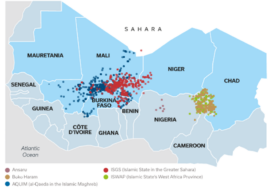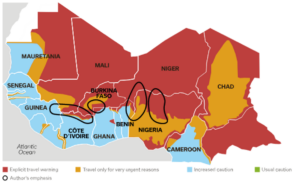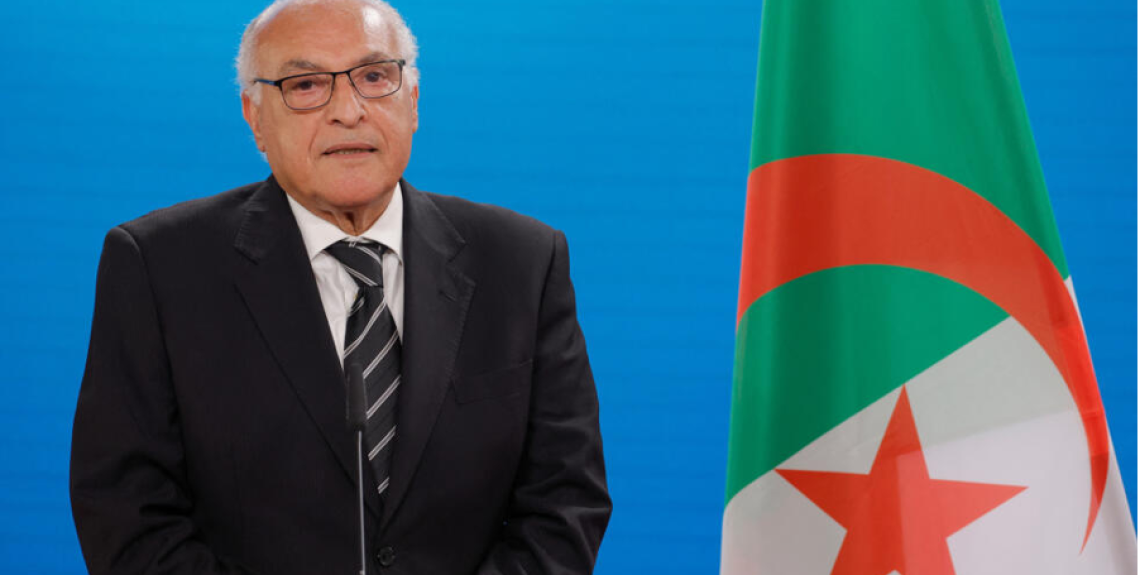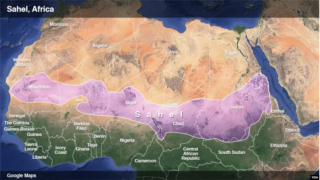In an effort to establish law-and-order in the African Sahel, the then French President Francois Hollande first ordered the starting of Serval Operation in 2013, and later in 2014 he started the new Barkhane Operation a counterinsurgency campaign against transnational terrorist groups, based throughout the Sahel region. While counterterrorism was on top of the agenda in the main Western capitals, in several African countries the population started seriously resenting the dictators that enjoyed long-standing support from Paris.
It less than a decade the human rights violations and corruption plaguing these regimes nourished a strong anti-French sentiment, that in turn, together with the emerging of a new young generation of military and politicians, civil society and media across Francophone Africa, became a concurring geopolitical factor in the decline of the Françafrique. This new post-colonial Neo-Africanism is poised to end the French hegemony in the region.
Western counterterrorist deployments are no longer seen by the countries of the Sahel as a valid instrument, while a series of coups d’état are toppling the old regimes, and the new antidote to terrorism is considered the new political dynamism in the Arab world, trying to aim at governments including constitutional Islamists and avoiding the excesses, graft and corruption of dystopian extremist radicals.
Against this backdrop has taken place the Niger coup (26 of July 2023), ousting the President Mohamed Bazoum and bringing to power a junta led by General Abdourahamane Tchiani. Well known is the past stand-off between Niamey (supported by Mali and Burkina Faso), Paris and Abuja, that wanted to lead the Economic Community of West African States (ECOWAS) in a military intervention with the objective of restoring the elected President Bazoum.
For France Niger is essential for its nuclear industry and for keeping a firm foothold in the region, while other regional and superpowers are starting to create their own zones of influence (like Russia and China). For its part, the USA have been playing a low profile, keeping two military bases for now but suspending special assistance to Niamey and counterterrorist operations after having officially declare the 10th of October that a coup has taken place, once exhausted any possible mediation to a return to constitutional order. Türkiye, on the other hand, has been vocal and posting itself in the region as a trustworthy partner and stabilizing force in West and East Africa.
Less visible and known is the role of Algeria. In fact, the country sharing long land borders with Niger, has proposed an initiative, involving a six-month transition period in the country led by civilians. Algiers adheres in fact to the condition of the return of constitutional legitimacy by Niger, but, by long experience, it keeps present the implications posed by the lethal combination of radical armed and separatist groups, migrant flows, cross-border smuggling, trafficking networks, adding to the challenges posed by extreme poverty, underdevelopment, rampant climate change and weak governance.

Algeria is concerned because the repercussions of instability and political and security vacuum will be worse than those from neighbouring Libya: in this case the entire region of the African Sahel from the Atlantic Ocean to the Red Sea risks to implode. Therefore, it does not want to become Pakistan of the African Sahel, in light of the implementation of a new big game narrative planned by super and regional powers in the unstable and rich region.

The security and humanitarian ramifications of the two Generals’ war in Sudan are already showing their impacts on Algeria, and Libya crossing from Chad to Niger, moving up to the North African countries. This is why Algiers keeps very good intelligence contacts with Paris and Washington in the fight against terrorism, narcotics and weapons trafficking, and migrant smuggling across the harsh zone of the Sahel.
Moreover, the country has a solid experience in mediation and reconciliation processes on the basis of the Algerian Reconciliation Charter launched by then-President Liamine Zeroual in 1996 and achieved by late President Abdelaziz Bouteflika in 2000. Actually, the authorities of Chad and other Sahel countries are looking at this model to bring peace and reconciliation in the area. And, according to Algerian news reports, the military authorities in Niamey did welcome positively Algiers’ Foreign Ministry initiative to restore constitutional order in the country. The mediation is nevertheless waiting for concrete clarification by the Niamey junta.
In principle, the political aspect is complemented by a religious component too, called al-Wasatiyyah. Literally translated into “Justly Balanced Quality” or “Justly Balanced Nature”, and more loosely understood as “moderation”, it is the political-religious strategy to marginalize the radical discourse used by radical supranational Islamist groups, a public attitude, disposition and sentiment that provides the implementation of the moderate religious discourse.
Abdennour Toumi
Maghreb Studies Expert at Center for Middle East Studies / ORSAM - Ankara, Turkey























